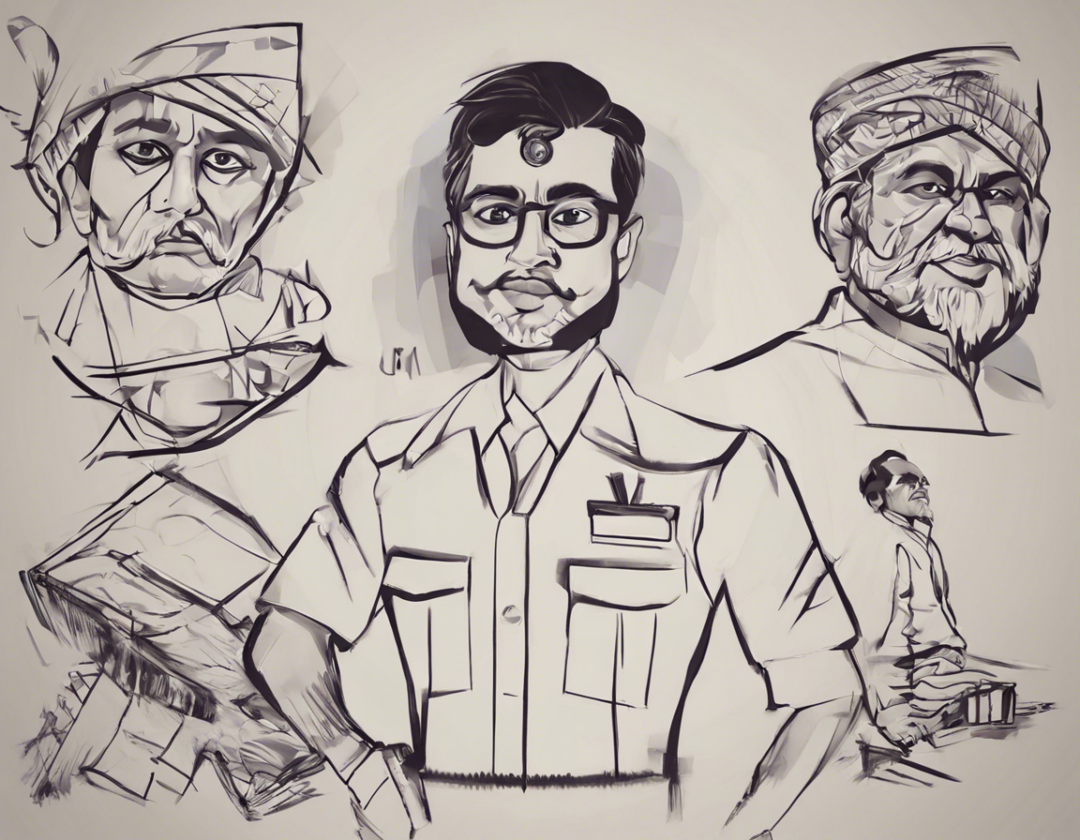Meet Suraj Tiwari: The Inspiring Journey of an IAS Officer

Introduction:
In a country like India, where the Civil Services Examination is considered one of the toughest exams, the journey of Suraj Tiwari stands out as an inspiration for many aspiring civil servants. Suraj Tiwari, hailing from a small town in Uttar Pradesh, not only cracked the prestigious Union Public Service Commission (UPSC) exam but also secured a remarkable rank to become an Indian Administrative Service (IAS) officer. His journey is a testament to hard work, determination, and perseverance.
Early Life and Background:
Suraj Tiwari was born in a modest family in the town of Gorakhpur. Coming from a background where financial resources were limited, Suraj faced numerous challenges in pursuing his dream of becoming a civil servant. Despite the odds stacked against him, he was determined to excel academically and make a difference in the society.
Educational Journey:
Suraj’s educational journey is a shining example of his dedication and commitment to his goal. After completing his schooling from a local government school, he secured admission to a prestigious college in Delhi University. He opted for Political Science as his major, which laid the foundation for his interest in governance and public administration.
During his college years, Suraj actively participated in debates, quizzes, and social work activities. He was known for his leadership qualities and his ability to inspire his peers. His professors remember him as a diligent student with a thirst for knowledge and a passion for public service.
Cracking the UPSC Exam:
After completing his graduation, Suraj decided to appear for the Civil Services Examination conducted by the UPSC. This decision marked the beginning of a rigorous preparation phase that tested his intellectual capabilities and emotional resilience. Suraj immersed himself in the study of diverse subjects ranging from history and geography to economics and current affairs.
His daily routine included long hours of study, revision, and practice tests. He also benefited from the guidance of experienced mentors and coaching institutes that provided him with strategic insights and study materials. Suraj’s disciplined approach and strategic planning set him apart from his peers and helped him stay focused on his goal.
The Moment of Triumph:
After months of intense preparation, sleepless nights, and unwavering determination, Suraj appeared for the UPSC Preliminary, Mains, and Interview rounds. His hard work paid off when the results were announced, and Suraj Tiwari emerged as one of the top rank holders in the country. His family, friends, and well-wishers rejoiced in his success and celebrated his achievement as a victory for the entire community.
Life as an IAS Officer:
Today, Suraj Tiwari serves as an IAS officer in a key administrative position in his cadre. His responsibilities include implementing government policies, overseeing development projects, and addressing public grievances. Suraj’s approach to governance is marked by transparency, accountability, and empathy towards the citizens he serves.
As an IAS officer, Suraj has been involved in several initiatives aimed at promoting education, healthcare, and women empowerment in his district. He believes in the power of grassroots administration and works closely with local authorities to bring about positive change in the lives of the people.
Lessons from Suraj Tiwari’s Journey:
Suraj Tiwari’s journey from a small town boy to an IAS officer is a source of inspiration for millions of youngsters across the country. His story encapsulates the essence of hard work, perseverance, and dedication in achieving one’s goals. Here are some key lessons that aspiring civil servants can learn from Suraj’s journey:
1. Set Clear Goals: Suraj had a clear vision of his goal to become an IAS officer, which enabled him to stay focused and motivated throughout his preparation.
2. Stay Consistent: Consistency in preparation is crucial for success in competitive exams like the UPSC. Suraj’s disciplined approach and daily study routine played a significant role in his success.
3. Seek Guidance: It is essential to seek guidance from experienced mentors, coaching institutes, and study materials to streamline your preparation and gain valuable insights.
4. Believe in Yourself: Suraj’s journey is a testament to the power of self-belief and confidence. Trust in your abilities and stay positive during challenging times.
5. Persevere in the Face of Challenges: Suraj faced numerous challenges during his preparation, but his resilience and determination helped him overcome obstacles and emerge victorious.
Conclusion:
In conclusion, Suraj Tiwari’s inspiring journey from a small town boy to an IAS officer exemplifies the transformative power of hard work, determination, and perseverance. His success story serves as a guiding light for aspiring civil servants who dream of making a positive impact on society through public service. Suraj’s journey reminds us that with unwavering commitment and a never-give-up attitude, any goal is within reach.
Frequently Asked Questions (FAQs):
1. What is the full form of IAS?
The full form of IAS is Indian Administrative Service, which is one of the prestigious civil services in India.
2. How many attempts are allowed for the UPSC exam?
General category candidates can attempt the UPSC exam six times, while OBC and SC/ST candidates have limitations based on age criteria.
3. How long does it take to prepare for the UPSC exam?
The duration of UPSC exam preparation varies for each candidate but usually ranges from 1 to 2 years of dedicated study and practice.
4. Can I crack the UPSC exam without coaching?
While coaching can provide guidance and study materials, candidates can crack the UPSC exam through self-study, online resources, and consistent practice.
5. What are the optional subjects in the UPSC exam?
Candidates can choose one optional subject for the UPSC exam from a list of subjects including Public Administration, Sociology, Geography, History, Political Science, etc.
6. Is the UPSC exam conducted in regional languages?
The UPSC exam is conducted in both English and Hindi, but candidates can choose any of the 22 scheduled languages for the Mains examination.
7. What is the salary of an IAS officer?
The salary of an IAS officer varies based on the pay scale and allowances, starting from around Rs. 56,100 per month and going up to Rs. 2,50,000 per month for higher ranks.
8. Can foreign nationals apply for the UPSC exam?
No, only Indian citizens or PIOs (Persons of Indian Origin) can apply for the UPSC exam.
9. Are there any physical fitness requirements for the IAS exam?
While there are no specific physical fitness tests for the IAS exam, candidates need to be medically fit and mentally alert to perform their duties efficiently.
10. How can I stay motivated during UPSC exam preparation?
Staying motivated during UPSC exam preparation is crucial. Setting small goals, maintaining a study schedule, engaging in physical activities, and seeking support from peers can help you stay motivated throughout the journey.








